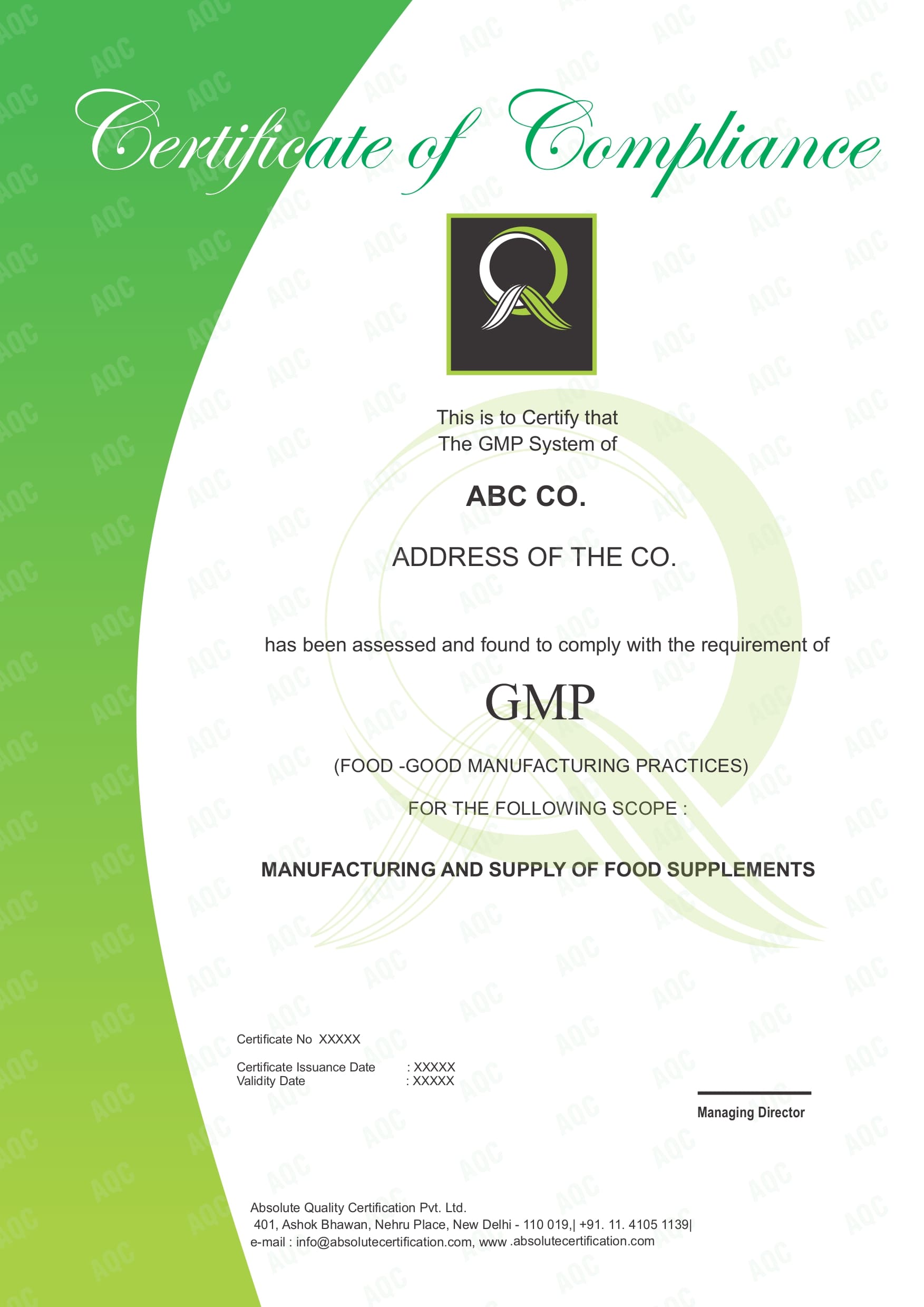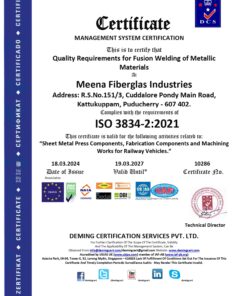Sale!
GMP Certification
Original price was: ₹15,000.00.₹10,000.00Current price is: ₹10,000.00.
GMP stands for Good Manufacturing Practice. It’s a system for ensuring that products are consistently produced and controlled according to quality standards. GMP certification is a formal recognition that a manufacturing facility or process complies with GMP guidelines.
Here are some key points about GMP certification:
1. **Purpose**: GMP certification ensures that pharmaceuticals, food, cosmetics, and medical devices meet quality standards appropriate for their intended use and are safe for consumers.
2. **Components**: GMP covers various aspects of production, including:
– Quality control
– Hygiene and cleanliness
– Equipment verification
– Raw material sourcing and testing
– Production process validation
– Documentation and record-keeping
3. **Benefits**:
– **Consumer Safety**: Ensures products meet quality standards and are safe for consumption or use.
– **Market Access**: Many countries require GMP certification for importing pharmaceuticals, food, or medical devices.
– **Brand Reputation**: Demonstrates a commitment to quality, which can enhance a company’s reputation and trustworthiness.
– **Operational Efficiency**: Adherence to GMP can lead to better operational efficiency and reduced production errors.
4. **Certification Process**:
– **Assessment**: An initial assessment is conducted by a certification body to evaluate compliance with GMP standards.
– **Audit**: Regular audits are performed to ensure ongoing compliance.
– **Certification**: Once compliance is verified, the facility or process is awarded GMP certification, typically valid for a specific period, after which re-certification is required.
5. **Standards**: While the principles of GMP are universal, specific guidelines and standards may vary by industry and country. For instance:
– **Pharmaceuticals**: GMP guidelines for pharmaceuticals are often more stringent due to the critical nature of medicines.
– **Food**: GMP for food production focuses on hygiene, sanitation, and food safety.
– **Cosmetics**: GMP for cosmetics ensures product safety and quality.
6. **International Recognition**: GMP certification from one country is often recognized internationally, but there may be additional requirements or inspections needed for compliance with local regulations.
If you’re considering obtaining GMP certification for your business or understanding it better, it’s crucial to consult with experts or organizations specializing in GMP compliance to guide you through the process.












Reviews
There are no reviews yet.